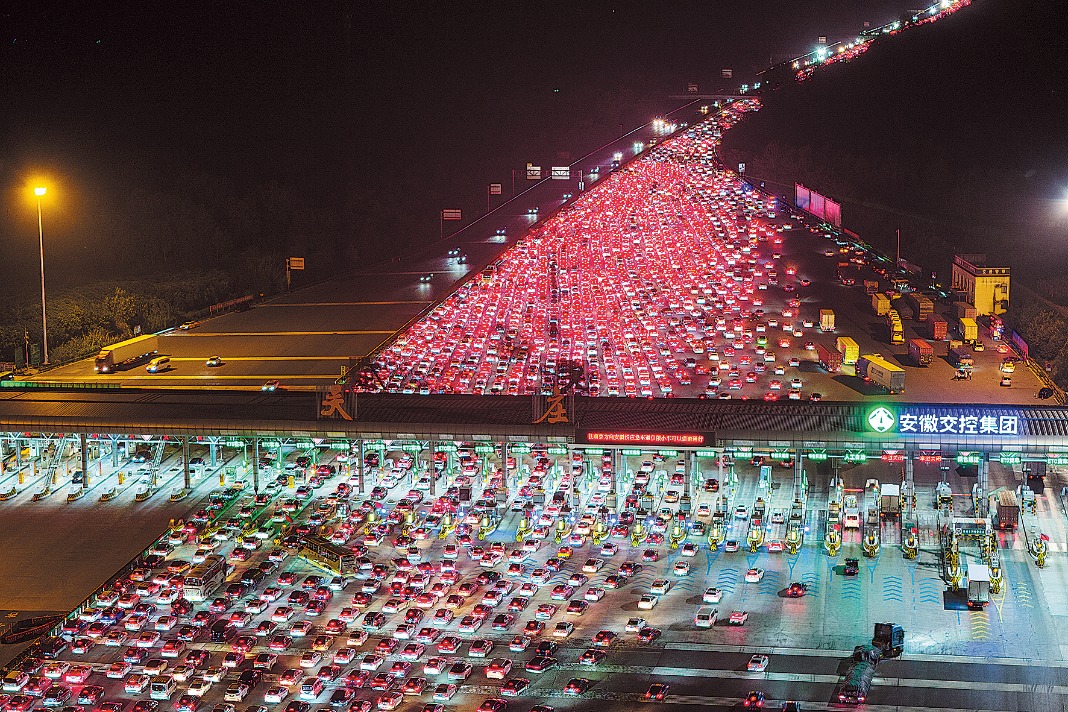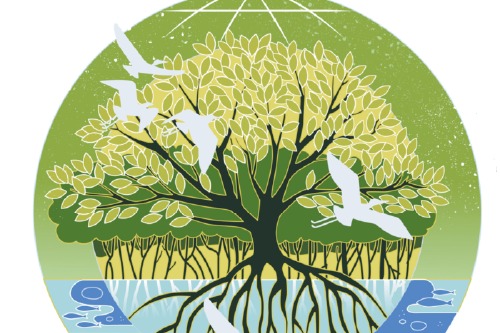Return of the Rest


Countries rising today represent civilizations that played a key role in shaping world order in the past
Editor's note: The world has undergone many changes and shocks in recent years. Enhanced dialogue between scholars from China and overseas is needed to build mutual understanding on many problems the world faces. For this purpose, the China Watch Institute of China Daily and the National Institute for Global Strategy, Chinese Academy of Social Sciences, jointly present this special column: The Global Strategic Dialogue, in which experts from China and abroad will offer insightful views, analysis and fresh perspectives on long-term strategic issues of global importance.
Recent developments such as United States President Donald Trump's sweeping tariffs — now suspended or reduced — on US' friends and competitors alike, his rejection of the multilateral system that the US itself helped to build after World War II, rising US-China tensions, the continuing Ukraine crisis and the Israeli-Hamas conflicts have raised serious concerns in the West about the collapse of world order. Thanks to Trump's pressures on NATO, the European Union, Canada and other allies, the West itself appears more divided than it has ever been. The West believes only it can create and manage a stable world order. Now, it feels deep anxieties about what may come next, as the West may be relegated to a less privileged status.
But the world order is not the monopoly of the West. We need a better understanding of how the present world order came about, before we can assess what might come after it. We need to go back in history and look at what other civilizations have done to create their own world orders, and what are the similarities, differences, parallels, points of convergence and divergence among them.
In a new book, The Once and Future World Order, I tell a connected global story of the past, present and potential future of world order. The book argues that the current world order rests on multiple points of origin in both Western and non-Western civilizations. As Western dominance declines, the future of the world order will be multi-civilizational. No world order is permanent, so is the world order dominated by the West for the past few hundred years. Its passing should be the beginning of a new one, not necessarily one of collapse and chaos.
This view is at variance with the general view of major writers in the West, among them Henry Kissinger, Niall Ferguson, Samuel Huntington, Fareed Zakaria and Francis Fukuyama. They argue, more or less, that the current world order, which has existed for the past around three centuries, is mainly a Western creation, that it has mostly been a good thing, and that its decline is deeply worrisome. But this book, which goes back deep in history, shows that the ideas and contributions of many civilizations together created the current world order. These include the Sumerian, Egyptian, Indian, Chinese, Greek, Roman, Islamic, African, native American and Western civilizations. Ideas about republican government, the protection of lives and liberty, justice and the rule of law, as well as principles of freedom of the seas, humanitarian conduct in warfare, and rules-based economic and diplomatic exchange, and more have come from non-Western civilizations, in both their foundational and developed forms. Taking into account these non-Western historical experiences exposes the limitation of notions such as the Thucydides Trap and the Tragedy of Great Power Politics, both of which are derived from Western history but are presented as if they are universally applicable.
While influential Western scholars such as John Mearsheimer argue that great power relations are "tragic", ending in competition and war, there are also plenty of examples of durable great power cooperation. This is not just the Concert of Europe — a favorite example of Western academia — that emerged from the Congress of Vienna (1814-15) after the defeat of Napoleon.
Great power diplomacy and cooperation goes back to 3,000 years before the European Concert emerged, around the middle of the second millennium BC, when Egypt and other powers of the region — Hatti, Mitanni, Assyria and Babylon — managed regional order, forming the Amarna system. The European Concert lasted about a century, while the Amarna system — based on the norms of reciprocity and equality among the major powers — kept peace in the region for nearly two centuries.
I call the emerging post-Western order a Global Multiplex, rather a multipolar one that focuses narrowly on military and economic strength. Will this be such a bad thing, as many in the West insist and fear? This book argues that the end of Western dominance will actually be a good thing for the world as a whole. The major benefits of the present world order have gone disproportionately to the West at the expense of the Rest, because of predatory colonization, violence, racism and injustice. Centuries of dominance have bred both arrogance and ignorance in the West, in which the ideas and contributions of other civilizations through history have been forgotten or dismissed.
Pundits use the term "rise of the Rest" to describe the role of the Global South today, but in many cases, this is more accurately described as the "return of the Rest". Many of the countries rising today represent civilizations that played a key role in shaping world order through the past millennia. A world order that sees the return of the Rest, where non-Western nations find more voice and role, will create a more equitable and mutually respectful global arrangement, one that will temper the worst excesses of Western dominance while satisfying the needs of non-Western nations for status and recognition.
Not surprisingly, given the historical advantages that have gone to the West over the past three centuries, the fear of the future is more evident in the US and Europe than it is in the nations now emerging to challenge Western dominance. But realistically, the West should accept that its rise to global dominance would not have been possible without borrowing from the ideas and approaches of other civilizations. In other words, both the West and the Rest have learned from each other, and this mutual learning among civilizations is a far more persistent feature of world history than the "clash of civilizations".
Given this historical record, the West should accept its relative decline and work with the Rest, whose ideas and approaches could enrich the global knowledge pool, forge genuinely multicultural, mutually tolerant relations among states, and in doing so, create new conditions and mechanisms for stability, prosperity and justice. No world order can be free from conflict. But as I argue in my recent essay in New York Times, there are reasons to be optimistic about a post-US order, which I call a Global Multiplex. To be sure, the world order is now going through a period of uncertainty and conflict. But it may also turn out to be more just and inclusive in the longer term. All civilizations have attraction and ugliness. But conventional history has disproportionately projected the West as the dynamic and progressive creator and the Rest as the passive and regressive follower. Yet, history tells us that non-Western civilizations have offered positive ideas of progress and cooperation in the making of the contemporary world order. Recognizing the facts of their contributions is important for leaving behind the "clash of civilizations" thesis, and its by-product, the West-versus-Rest idea.
The author is a distinguished professor at American University, Washington DC. His new book, The Once and Future World Order: Why Global Civilization Will Survive the Decline of the West (Basic Books 2025), will be published in Chinese translation by CITIC Press. The author contributed this article to China Watch, a think tank powered by China Daily. The views do not necessarily reflect those of China Daily.
Contact the editor at editor@chinawatch.cn.


































